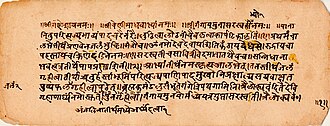Kumbh Mela
Kumbh Mela is a major pilgrimage and festival in Hinduism that is celebrated in a cycle of approximately 12 years at four river-bank pilgrimage sites: the Prayagraj (at the confluence of the Ganges, the Yamuna, and the mythical Sarasvati rivers), Haridwar (along the Ganges River), Nashik (on the banks of the Godavari River), and Ujjain (on the banks of the Shipra River). The festival is marked by a ritual dip in the waters, but it is also a celebration of community commerce with numerous fairs, education, religious discourses by saints, mass feedings of monks or the poor, and entertainment spectacle.
The origin of Kumbh Mela is found in Hindu mythology, which tells the story of a battle between the gods and demons over the nectar of immortality. During this battle, drops of the nectar fell on the four locations on Earth, giving them their sacred status. The name "Kumbh Mela" translates to "Festival of the Pot," referring to the pot of nectar.
History
The historical records regarding Kumbh Mela are sparse, but it is believed that the festival has been observed for at least 1,500 years. The Chinese traveler Xuanzang (Hiuen Tsang) mentioned a ritual organized by Emperor Shiladitya (identified with Harsha) at the confluence of two rivers, that is believed to be an early reference to the Kumbh Mela.
Significance
The Kumbh Mela is not only significant for its religious importance but also for the immense gathering of people it attracts, making it one of the largest peaceful gatherings in the world. The festival is recognized by UNESCO as an Intangible Cultural Heritage of Humanity. The main event is the ritual bath on the banks of the rivers in each town, which is considered to be an act of purification, washing away sins and helping the devotee break the cycle of rebirth, thereby attaining Moksha (liberation).
Rituals and Practices
During the Kumbh Mela, several rituals are performed; foremost among them is the ritual bath. Other activities include religious discussions, devotional singing, mass feeding of holy men and women and the poor, and religious assemblies where doctrines are debated and standardized. Kumbh Mela is also significant for the presence of Sadhus (holy men) from different Hindu monastic orders, who visit the Kumbh Mela to perform sacred rituals.
Types of Kumbh Melas
There are four types of Kumbh Melas: the Maha Kumbh Mela, which is held every 12 years at Prayagraj; the Purna Kumbh Mela, held every 12 years at the other three sites; the Ardh Kumbh Mela, held every six years at Haridwar and Prayagraj; and the Kumbh Mela, held every three years, rotating among the four sites.
Challenges
The Kumbh Mela faces several challenges, including the management of the large crowds, ensuring the safety of pilgrims, maintaining cleanliness, and managing the environmental impact of the event on the rivers and surrounding areas.
In Popular Culture
The Kumbh Mela has been depicted in numerous films, documentaries, and books, highlighting its cultural significance and the diversity of the Indian subcontinent.
This article is a Hinduism-related stub. You can help WikiMD by expanding it!
Transform your life with W8MD's budget GLP-1 injections from $125.
W8MD offers a medical weight loss program to lose weight in Philadelphia. Our physician-supervised medical weight loss provides:
- Most insurances accepted or discounted self-pay rates. We will obtain insurance prior authorizations if needed.
- Generic GLP1 weight loss injections from $125 for the starting dose.
- Also offer prescription weight loss medications including Phentermine, Qsymia, Diethylpropion, Contrave etc.
NYC weight loss doctor appointments
Start your NYC weight loss journey today at our NYC medical weight loss and Philadelphia medical weight loss clinics.
- Call 718-946-5500 to lose weight in NYC or for medical weight loss in Philadelphia 215-676-2334.
- Tags:NYC medical weight loss, Philadelphia lose weight Zepbound NYC, Budget GLP1 weight loss injections, Wegovy Philadelphia, Wegovy NYC, Philadelphia medical weight loss, Brookly weight loss and Wegovy NYC
|
WikiMD's Wellness Encyclopedia |
| Let Food Be Thy Medicine Medicine Thy Food - Hippocrates |
Medical Disclaimer: WikiMD is not a substitute for professional medical advice. The information on WikiMD is provided as an information resource only, may be incorrect, outdated or misleading, and is not to be used or relied on for any diagnostic or treatment purposes. Please consult your health care provider before making any healthcare decisions or for guidance about a specific medical condition. WikiMD expressly disclaims responsibility, and shall have no liability, for any damages, loss, injury, or liability whatsoever suffered as a result of your reliance on the information contained in this site. By visiting this site you agree to the foregoing terms and conditions, which may from time to time be changed or supplemented by WikiMD. If you do not agree to the foregoing terms and conditions, you should not enter or use this site. See full disclaimer.
Credits:Most images are courtesy of Wikimedia commons, and templates, categories Wikipedia, licensed under CC BY SA or similar.
Contributors: Prab R. Tumpati, MD






